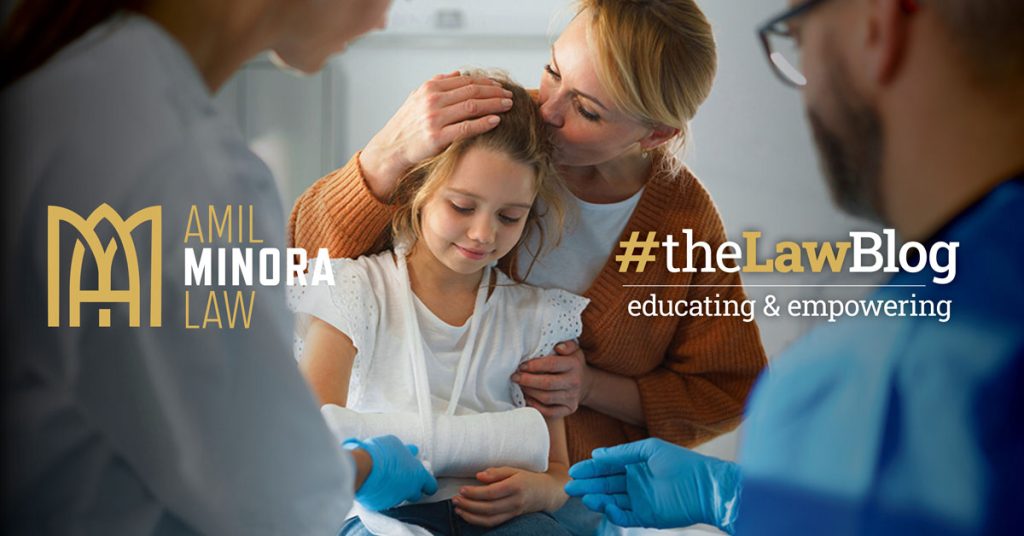What parents and guardians need to know
When a child suffers an injury due to someone else’s negligence, the legal process becomes significantly more complex than a typical personal injury claim. Parents and guardians face unique challenges in protecting their child’s rights and ensuring proper compensation for injuries that may affect them for years to come. Personal injury claims involving minors require thorough understanding of the law and rights of the child and parents or guardians.
The legal status of minors in personal injury cases
In Pennsylvania, individuals under 18 years old cannot file lawsuits or sign legal documents on their own behalf. This fundamental principle shapes every aspect of a minor’s personal injury claim. A parent or court-appointed guardian must act as the child’s representative throughout the legal process, making decisions about settlement offers, medical treatment documentation, and litigation strategies.
The statute of limitations operates differently for minors as well. In Pennsylvania, the two-year time limit for filing personal injury claims typically doesn’t begin until the child turns 18, giving them until their 20th birthday to pursue legal action. This extended timeframe protects children who cannot advocate for themselves during their minority. For example: if a 10-year-old child is hurt in a playground accident, the statute of limitations begins when they turn 18, giving until their 20th birthday to file. This tolling recognizes that children may not appreciate their rights or understand long‐term consequences. Nevertheless, though you can wait, you shouldn’t: evidence fades, memories dim, and insurers may argue negligence sooner rather than later.
Court approval: a critical safeguard
Pennsylvania law requires court approval for any settlement involving a minor, regardless of the amount. This crucial protection prevents parents or guardians from accepting inadequate settlements that might not serve the child’s best interests. The court reviews the settlement terms, medical records, and proposed distribution of funds to ensure fairness.
During the approval hearing, the judge evaluates whether the settlement adequately compensates the child for medical expenses, pain and suffering, and potential future complications. The court examines how the settlement funds will be managed and distributed, ensuring the money remains available for the child’s benefit.
Managing settlement funds
Once the court approves a settlement, strict rules govern how those funds are handled. In Pennsylvania, settlements exceeding $25,000 typically must be placed in a restricted account or structured settlement until the minor reaches 18. This prevents premature spending and ensures the money remains available for the child’s future needs.
Parents cannot simply access these funds at will. Any withdrawals before the child reaches adulthood require additional court approval, and the requesting party must demonstrate that the withdrawal serves the minor’s best interests. Common approved uses include ongoing medical treatment, therapy, adaptive equipment, or educational expenses directly related to the injury.
Special considerations in minor injury cases
Healthcare providers and insurance companies handle minor injury claims differently than adult cases. Medical consent becomes complicated when treatment decisions carry long-term implications. Parents must balance their guardianship authority with the child’s developing autonomy, particularly with teenagers who may have opinions about their treatment.
Documentation requirements intensify in cases involving children. Schools, daycare facilities, and medical providers all maintain relevant records. Attorneys must gather extensive evidence showing how the injury affects the child’s daily life, education, social development, and future opportunities. Photographs, teacher statements, and developmental assessments become crucial evidence.
The role of guardians ad litem
In complex cases or when conflicts of interest arise, Pennsylvania courts may appoint a guardian ad litem—an independent party who represents the child’s interests specifically for the lawsuit. This occurs when parents have competing interests, when custody disputes complicate the claim, or when the settlement amount is substantial.
The guardian ad litem investigates the circumstances, reviews medical records, consults with experts, and makes recommendations to the court about what serves the child’s best interests. Their involvement adds another layer of protection for vulnerable young victims.
Statutory obligations and building codes
Pennsylvania’s Landlord-Tenant Act and local building codes establish minimum safety standards that landlords must maintain. Violations of these requirements can strengthen tenant injury claims significantly. When landlords fail to address code violations that directly contribute to tenant injuries, they face enhanced liability exposure.
Moving forward
Personal injury claims involving minors demand patience, thoroughness, and sensitivity. The legal system’s protective measures may seem cumbersome, but they exist to safeguard children who cannot fully protect themselves. Parents and guardians navigating these claims should work closely with an experienced attorney like Amil Minora who understands both the legal requirements and the emotional complexities these cases present. Every child deserves proper compensation for injuries that may affect their entire lifetime, and Pennsylvania’s legal framework strives to ensure they receive it.

